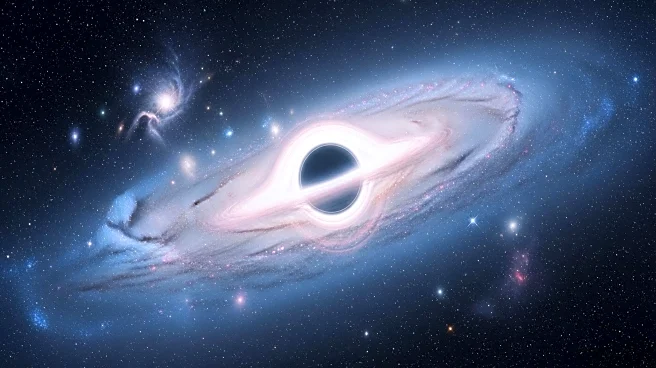What is the story about?
What's Happening?
A study by physicists at the University of Massachusetts Amherst suggests a 90% chance of observing a black hole explosion within the next ten years. These explosions, marking the death of tiny primordial black holes (PBHs) from the Universe's early moments, could confirm several theories about black holes and release a complete collection of fundamental particles. The study proposes that these events, previously thought rare, may occur every decade. Detecting such an explosion would provide evidence of Hawking radiation and offer insights into the fundamental particles of the Universe.
Why It's Important?
The potential observation of a black hole explosion would be a groundbreaking event in astrophysics, confirming the existence of PBHs and providing the first direct evidence of Hawking radiation. This could revolutionize our understanding of black holes and the fundamental particles that constitute the Universe. The findings could also influence theoretical physics by offering new data on particle interactions and the nature of dark matter. Such discoveries would have profound implications for our understanding of the Universe's history and structure.
What's Next?
The study suggests that current gamma ray observatories could detect these explosions, providing a unique opportunity for scientific discovery. If the models are correct, observing such an event would validate the study's predictions and offer a new perspective on black hole physics. This could lead to further research into the properties of PBHs and their role in the Universe. The findings also highlight the need for continued investment in observational technology to capture these rare cosmic events.

















